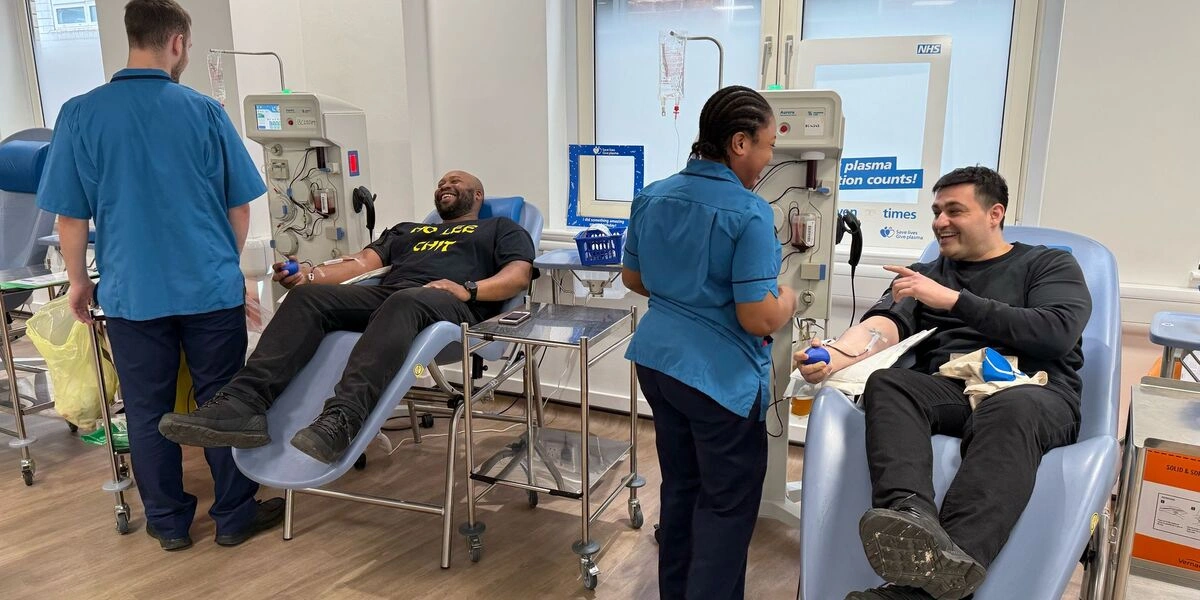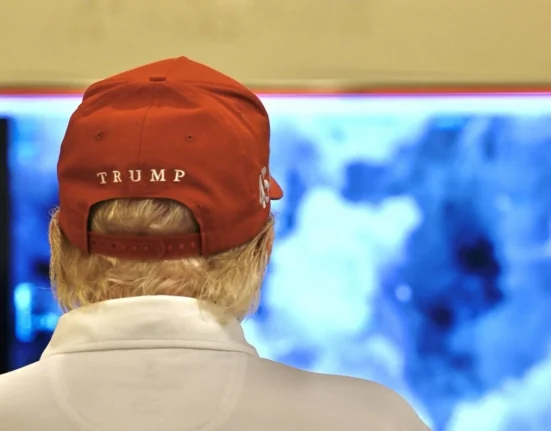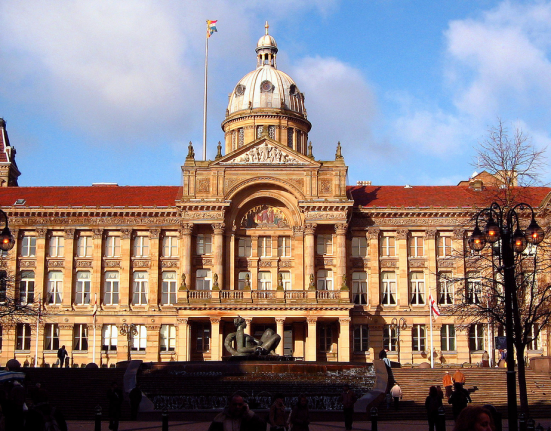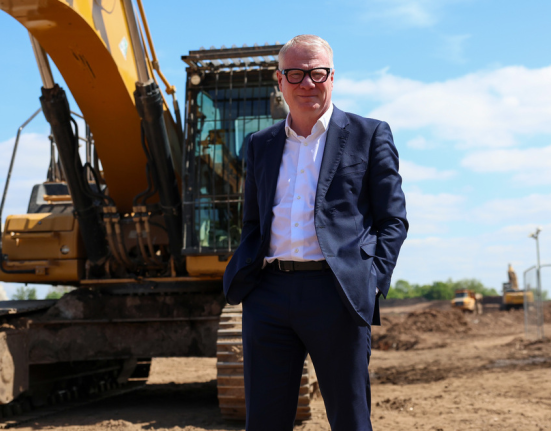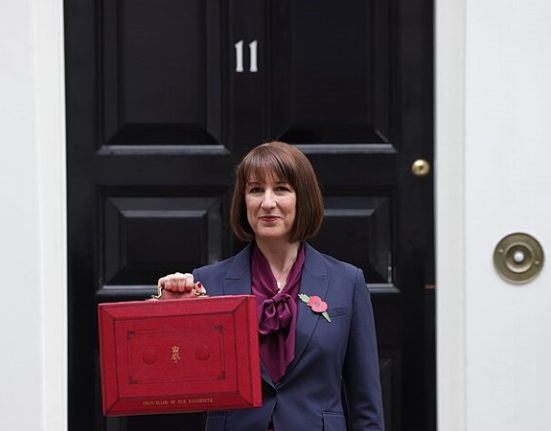The NHS Plasma Donor Centre on New Street, Birmingham, is one of just three such facilities in the country – and it’s making a real difference.
For the first time in a quarter of a century, plasma medicines made with donations from UK blood and plasma donors, such as immunoglobulin and albumin, are now being used to treat patients.
Plasma – “more valuable than gold”
These medicines play a crucial role in treating people with immune deficiencies, rare diseases and critical conditions, including trauma, complications in childbirth and liver disease. Unlike blood donations, plasma does not require the recipient to be a blood group match.
The uptick in plasma donations is down in part to the good work of Rubina Begum, community engagement officer, and her clinical colleagues including Mark Bailey, donor centre manager.
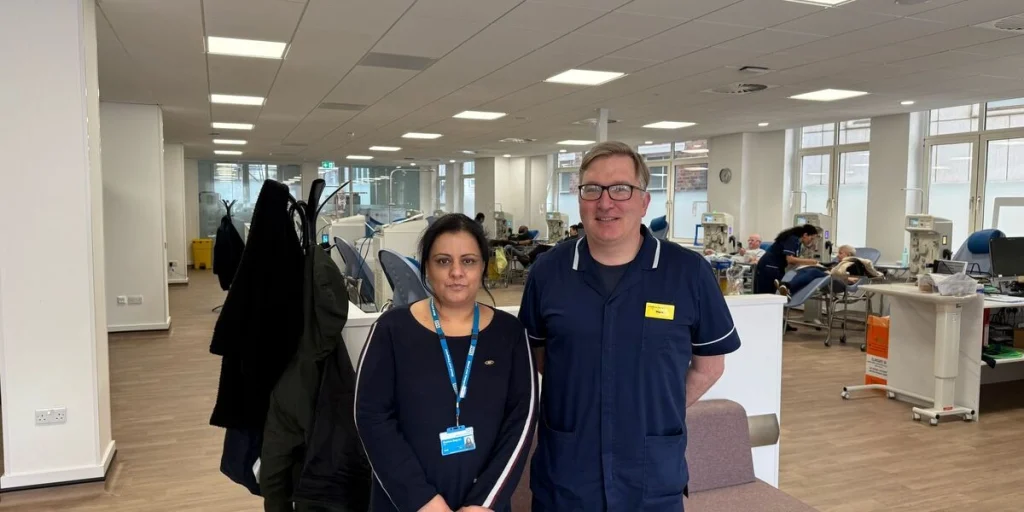
Their quiet persuasion of donors to sit for between 30 and 45 minutes, ideally every two weeks, to have their blood “filtered” – taken out of one vein to have plasma removed before being returned into another – is saving lives.
“They call plasma ‘liquid gold,’” says Mark. “In fact it’s more valuable than gold.”
Plasma makes up about 55% of our blood. It contains antibodies, known as immunoglobulins, which fight infection. Plasma is 93% water and 7% proteins – and those proteins are where the value lies.
Baby Aurora’s life was saved by plasma donors
The beneficiaries are people like Emma, who requires 155 plasma donations a year to prevent her becoming paralysed from the neck down due to a rare autoimmune condition called CIDP (Chronic Inflammatory Demyelinating Polyneuropathy).
And baby Aurora, whose life was saved by 21 plasma donations when she was struck down, at just nine months of age, by a condition called Kawasaki disease.
UK weaning itself off US imports of plasma
The UK’s self-sufficiency is increasing year-on-year for plasma-derived medicines.
Until now the UK has been entirely reliant on imported plasma medicines, mostly from the US, following a ban in 1998 due to Variant Creutzfeldt–Jakob disease. With the lifting of these restrictions in 2021 and 2023, NHS blood and transplant teams have been working tirelessly with Octapharma, its appointed fractionator (separating blood into its component parts), to get the UK’s plasma medicine supply chain firing at the level it should be.
“We aim to be delivering 23% of the UK’s supply of immunoglobulin by the end of this year and 80% of albumin,” says Rubina, who fizzes with ideas to boost donations.
Targeting team managers at local businesses to do team away-days to donate plasma is one such idea. Research, says Rubina, shows 43% of 3,000 workers surveyed would donate plasma if their employer allowed them time to do it, rising to 65% for those aged 25 to 44.
“Being here is uplifting”
At the New Street donor centre when WM News popped by were Chris Sharif, 42, from Harborne, MD at Sherrif and Penny Enforcement Agents, and his colleague Ricardo Leith-Bowen, 40, from Handsworth. Ricardo, a plasma donor debutant, said Chris, on his fifth donation, had persuaded him to give it a go.
“Why would I not give something that benefits so many people with so many different conditions? It’s only 45 minutes out of my life,” says Ricardo.
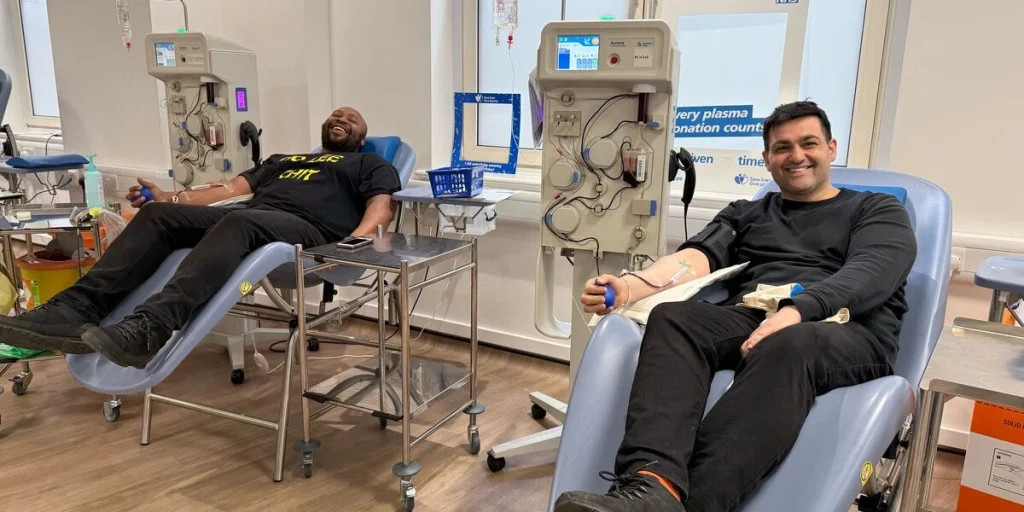
The vibe inside the donor centre is upbeat. Donors get to know each other as they get on the same donation cycles. An array of snacks and soft drinks is on offer to all donors.
Approaching his 200th donation is Professor Paul Cadman, CEO of One Thousand Trades Group.
“Being here is uplifting. It’s an opportunity to contribute meaningfully to our community and beyond. Each donation might be a small moment in my day, but it has the power to transform others’ lives,” says Paul.
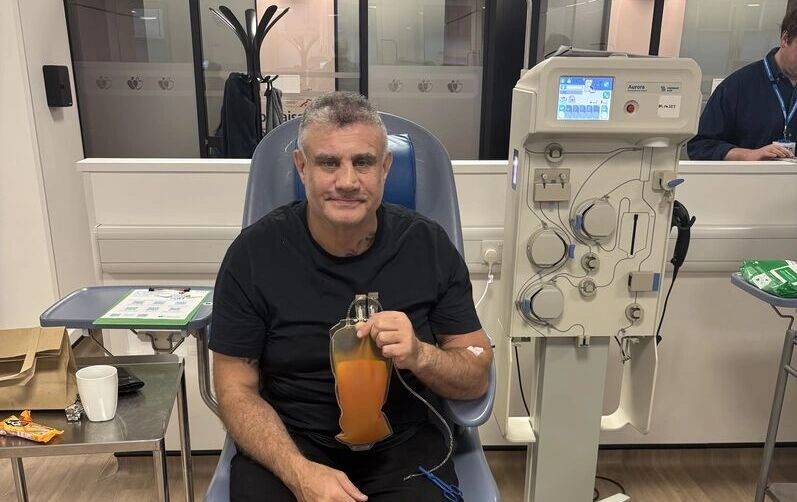
England’s two other donor centres are in Twickenham, Southwest London, and Reading, Berks.
Plans are afoot to establish plasma donation pipelines in Scotland, Wales and Northern Ireland. This marks a new era for UK healthcare, increasing the security of supply and reducing reliance on US imports.
- To donate plasma at the donor centre in Birmingham, call the NHS donor helpline on 0300 123 23 23.
- Click here for more info.
- Donor centre address: 61 New Street, Birmingham, B2 4DU

